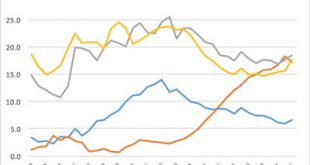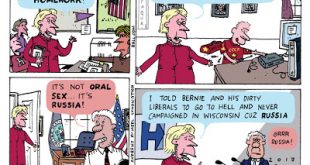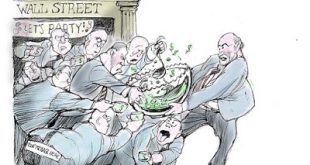I have discussed here the role of Chinese growth in the decrease of US manufacturing jobs (note that I was, and still am somewhat critical about simplistic stories of deindustrialization). At any rate, for other reasons I was looking at the IMF Direction of Trade Statistics (DOTS) and ended up with the two graphs below. After the Chinese entry in the WTO in 2001 the rise in Brazilian imports is astounding. Now Chinese imports of manufacturing goods are about the same share as imports from...
Read More »Back of the envelope calculation: BNDES lending and the Marshall Plan
So, a few days ago, someone (my bad, can't remember who did it) posted on FB a piece (in Portuguese and behind a wall; but this post is mostly about the role of historical comparisons really, so you can skip the piece altogether) on the Brazilian National Development Bank (Portuguese acronym is BNDES, btw) and how it lend more than the US government with the Marshall Plan. The guy did a back of the envelope calculation (I did check and bringing the US$ 13 billion to present value, with the...
Read More »Keen on financial crises ahead
[embedded content] I was listening to Steve on the radio yesterday. Here a short video of the Bloomberg Surveillance. Share Get link Twitter Google+
Read More »Slow Posting, Hyperventilation, and the Wrong Lesson for the Left
Still grading, so slow posting for a while. Just a brief note on the whole firing of Comey scandal that is still unfolding, and the incredible degree of anxiety on the left, which somehow thinks this means that there is a 'pee' tape and that Trump will be eventually impeached (here, for example; too many of these). This is at least the second event compared to Nixon's firing of the Attorney General, the infamous Saturday night massacre. The other being the firing the Acting Attorney...
Read More »Economists Behaving Badly
That's the title of a paper on economists that publish in predatory journals, published by Wallace and Perry last year and available here. In the abstract they suggest that "A surprising number of authors who are in the RePEc top 5% also published in predatory journals in 2015." 39 journals of the more than 1600 in RePEc are considered predatory, by the way. I don't have the list, but acceptance rates seem pertinent for a discussion of predatory behavior. The authors say in that regard:...
Read More »Monetary Policy and the Punch Bowl: The Case for Quantitative Policy and Wage Growth Targeting
By Thomas PalleyFederal Reserve Chairman William McChesney Martin famously declared that the Federal Reserve “is in the position of the chaperone who has ordered the punch bowl removed just when the party was really warming up.” This paper uses the punch bowl metaphor to analyze how the Federal Reserve can improve monetary policy so as to deliver shared prosperity with greater financial stability. The problem is the party starts earlier on Wall Street than Main Street, so the Fed may...
Read More »International Confederation of Associations for Pluralism in Economics (ICAPE) Call for Papers
Call for Papers, Panels and Workshops Drexel University, Philadelphia, PA January 4, 2018 Pluralism and Economics 10 Years after the Crisis (and 200 Years after Marx’s Birth) It has now been 10 years since the financial crisis, but there have been very few changes in mainstream economics. Meanwhile, pluralist economists have been developing sophisticated ideas aimed at addressing the major problems confronting contemporary society. It is also interesting that the 10 year anniversary...
Read More »Summer School at the Universidad de Valladolid
Organized by the Asociación de Economía Crítica, the organization that publishes the Revista de Economía Crítica (last issue online here; I'm on the board). I will teach on post-Keynesian views of the crisis, on the same day as Gérard Duménil , who will do a similar thing for Marxist approaches, I imagine. Program and registration form here.
Read More »Reagan Era Zombie Tax Plan at the Rick Smith Show
[embedded content] Share Get link Twitter Google+
Read More »On the Trump tax proposal at the Rick Smith Show
[embedded content] Got disconnected at the end. Link here. Share Get link Twitter Google+
Read More » Naked Keynesianism
Naked Keynesianism





